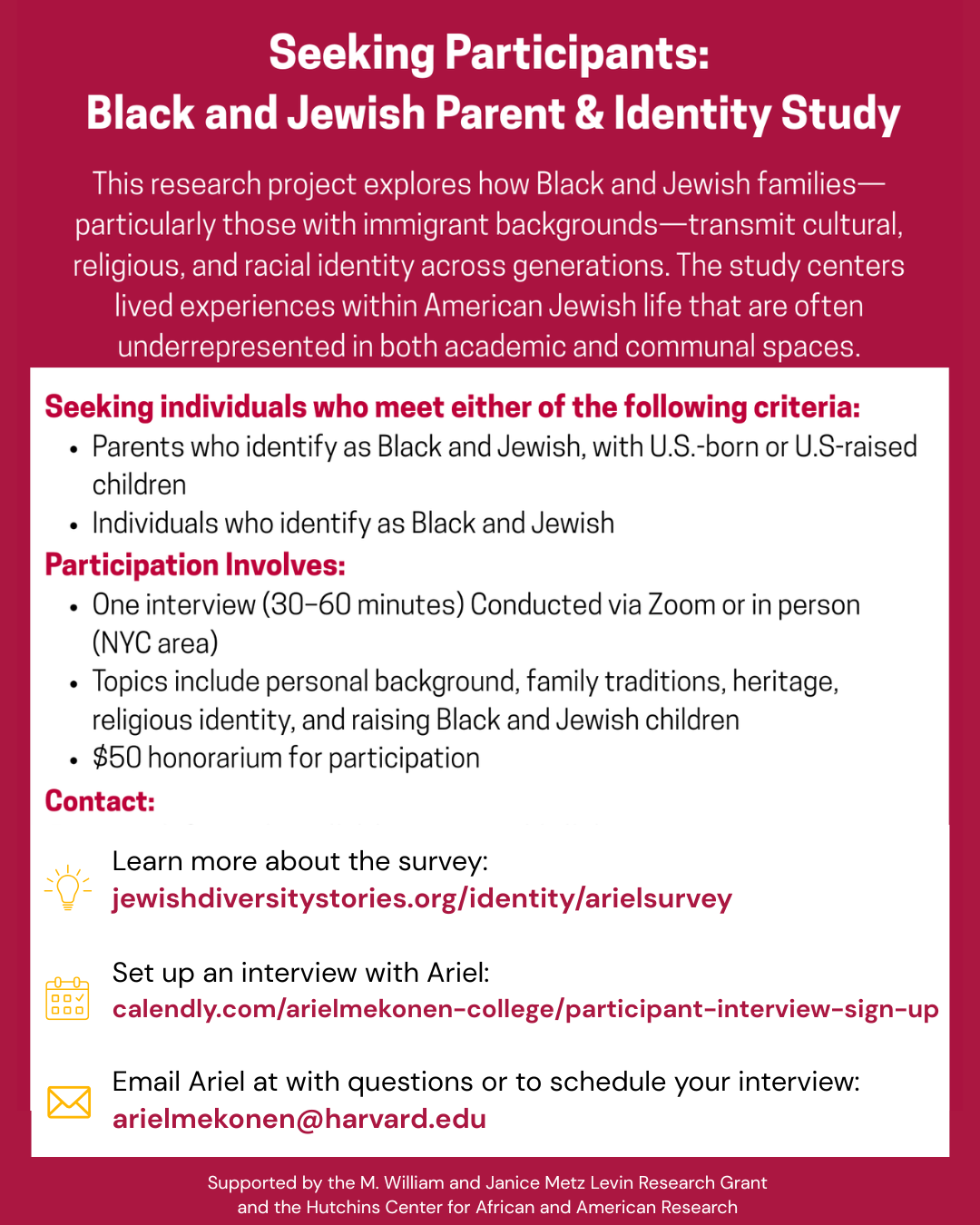This summer, Ariel, a rising junior at Harvard College, invites Black and Jewish parents and individuals to take part in a research project exploring how Jewish identity is shaped, transmitted, and transformed across generations within Black Jewish families. The study pays special attention to those with immigrant backgrounds and the distinct ways that race, culture, and religion intersect in family life.
Ariel was born and raised on New York’s Upper West Side and is the son of two Jewish parents—his father having immigrated from Ethiopia. He’s long navigated the intersection of Black and Jewish identity firsthand: from attending a predominantly white synagogue as one of the few Black Jews in the room to reflecting on how language, tradition, and culture shaped his upbringing. “My dad and I have very different Jewish experiences,” he shares. “Those differences made me curious about how other families like mine make decisions around identity, tradition, and parenting.”
His academic interest deepened through coursework and campus involvement in both Black and Jewish communities. Ariel is currently also contributing to a Jewish archival project and was nominated for a summer research grant—making this the first time his university has supported a project focused on Black Jewish experiences.
“This work is deeply personal,” Ariel says. “Growing up, I rarely saw my story reflected in Jewish spaces. This project is a chance to change that—for me and for others.”
Ariel’s project gives important voices to Black Jewish families who are often underrepresented in both Jewish research and public discourse. Ariel’s study seeks to uplift these voices and provide insight that can help synagogues, schools, and community spaces become more inclusive and reflective of the full diversity of Jewish life. By gathering personal stories, the project aims to illuminate both the shared and uniquely individual ways Black Jewish families navigate identity, tradition, and parenting. The findings may serve as a foundation for Ariel’s senior thesis and future graduate research. The survey itself is semi-structured and focused on storytelling, offering participants an opportunity to share their lived experiences.
“My hope,” Ariel says, “is that this work honors the complexities of Black Jewish life—our stories, our heirlooms, our traditions—and opens doors for others to continue this important work in the future.”








